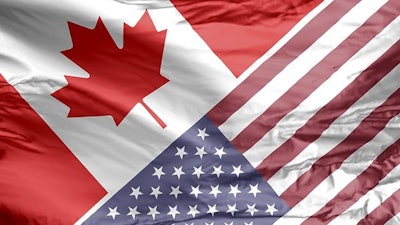
As the U.S. government clings to federal prohibition of cannabis, a global cannabis industry is growing, led largely by Canadian businesses.
Unbound by prohibition, Canadian cannabis businesses, while facing domestic market challenges, have been able to list on U.S. stock exchanges and develop export relationships and global operations.
As I noted in my “2021 State of the Industry” address at Cannabis Conference 2021 in August, “Producers in Canada exported 15.6 tons of dried cannabis flower and at least 7.3 kilolitres of cannabis oils and extracts during 2020. This likely means that Canada is the single largest exporter of cannabis flower and oil in the world,” as reported by Prohibition Partners.
And as you’ll read in this issue’s cover story (p. 40), Canada-based Tilray has entered “more than 20 countries across five continents.” Canada-based Aurora Cannabis, as another example, has a presence in approximately a dozen countries, according to the company.
Both producers also have started to lay the groundwork for U.S. footprints.
“In August 2021, Tilray acquired the majority of the outstanding senior secured convertible notes and associated warrants of Los Angeles-based MedMen Enterprises Inc. However, Tilray’s ability to convert these notes to equity hinges on federal legalization,” writes journalist Brooke Bilyj in the cover story. “Upon legalization and other necessary regulatory approvals, the notes and warrants would be convertible and exercisable for approximately 21% of the voting shares of MedMen. With 21 licenses and 25 locations across key urban centers in the U.S., MedMen represents a critical foothold in Tilray’s potential U.S. retail expansion.”
Also, Tilray’s merger with Aphria this year included the acquisition of Atlanta-based SweetWater Brewing Company (the 11th largest craft brewer in the U.S., according to the Brewers Association), which Aphria had acquired in 2020, “putting the company in position to pivot into cannabis-infused products upon legalization while owning (non-cannabis) revenue-generating businesses,” Bilyj writes.
As for Canopy Growth, the company announced in October that it had entered into definitive agreements with Wana Brands, “providing Canopy Growth with the right, upon federal permissibility of THC in the U.S., to acquire 100% of the outstanding membership interests of Wana, the #1 cannabis edibles brand in North America by market share.”
With the U.S. cannabis market for 2022 projected at 5.5 times the size of Canada’s, according to data from Headset, it’s no wonder Canadian companies are plotting their paths in. But as Canadian companies continue to build out their domestic and international operations, and improve processes and shore up supply chains (as they should), U.S. businesses can build on their home-field advantage and use this time in international limbo to evaluate market opportunities and refine their differentiators ahead of federal legalization.

















